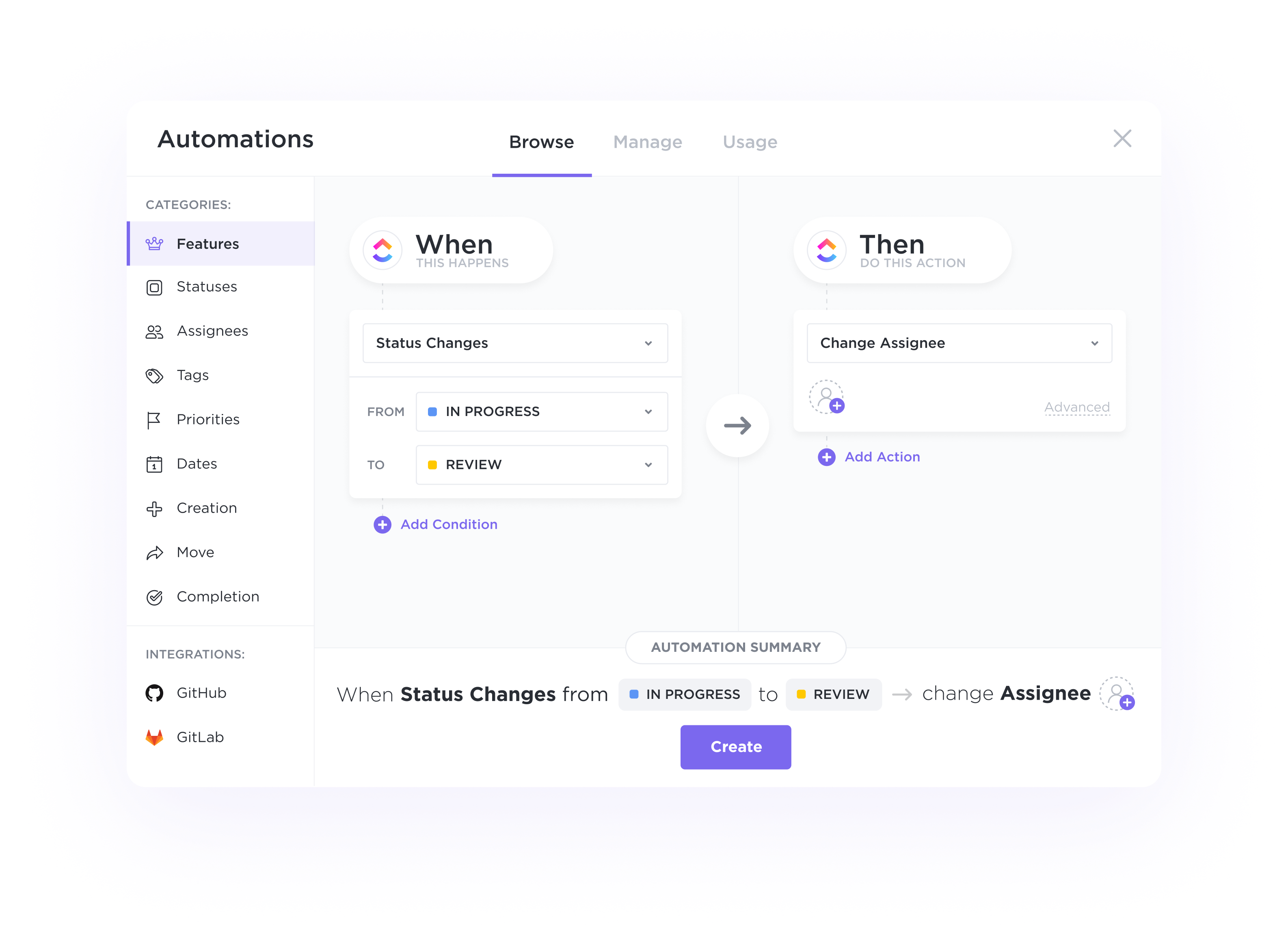Relationships
Build the perfect customer database.
Create your ideal system to store and analyze contacts, customers, and deals. Add links between tasks, documents, and more to easily track all your related work.

Gantt Charts
Supercharge your pharmaceutical company's customer relationships with a CRM system customized for your needs, powered by ClickUp. Streamline your sales processes, track customer interactions, and boost productivity with our user-friendly interface. Take your customer management to the next level with ClickUp's powerful tools designed specifically for pharmaceutical companies.
Free forever. No credit card.
Relationships
Create your ideal system to store and analyze contacts, customers, and deals. Add links between tasks, documents, and more to easily track all your related work.

Automations
Automatically assign tasks for each stage of your pipeline, trigger status updates based on activity, and switch priorities to alert your team on where to focus next.

Lead Tracking and Qualification: CRMs can help pharmaceutical companies capture leads from healthcare providers, pharmacies, and other channels, qualify them based on criteria like prescription volume, and nurture them through the sales process.
Pipeline Management: CRMs offer a visual representation of where potential sales stand, allowing sales teams to focus on high-priority leads and forecast revenue more accurately.
Sales Forecasting: By utilizing historical data on prescription trends and healthcare provider preferences, CRMs can assist in predicting future sales, aiding in strategic planning and target setting.
Campaign Management: CRMs enable pharmaceutical companies to create, execute, and analyze targeted marketing campaigns to healthcare professionals, patients, and other stakeholders, improving brand awareness and engagement.
Customer Segmentation: By grouping healthcare providers based on specialties, prescription habits, or geographic location, CRMs help tailor marketing efforts for increased effectiveness and personalized communication.
Customer Behavior Analysis: CRMs track how healthcare providers interact with pharmaceutical products, revealing insights into prescribing patterns, preferences, and market trends.
Performance Dashboards: Real-time data visualization tools in CRMs provide pharmaceutical companies with key metrics on sales performance, market share, and customer engagement, aiding in data-driven decision-making.
Centralized Database: CRMs maintain a centralized database of healthcare providers, pharmacies, and key contacts within pharmaceutical companies, ensuring accurate and up-to-date information for all team members.
Interaction Tracking: By logging interactions such as visits, calls, and emails with healthcare providers, CRMs offer a comprehensive view of customer relationships and help track the progress of ongoing engagements.
Pharmaceutical companies deal with strict regulations and compliance requirements. A CRM can help in tracking and managing regulatory requirements, ensuring that sales and marketing activities adhere to industry standards and guidelines, thus reducing the risk of non-compliance.
Pharmaceutical sales reps often interact with healthcare professionals. A CRM can track these interactions, including details of discussions, samples provided, and follow-up actions required. This helps in maintaining a transparent record of engagements and ensuring compliance with regulations.
CRMs can track sample distribution to healthcare providers, including quantity, type of samples, and feedback received. This helps in ensuring proper inventory management, tracking the effectiveness of samples, and complying with regulations regarding sample distribution.
CRMs allow pharmaceutical companies to segment healthcare providers based on various factors such as prescription history, specialties, or preferences. This segmentation helps in targeting the right providers with relevant information, improving the efficiency of sales and marketing efforts.
Pharmaceutical companies can use CRMs to track sales performance, analyze trends in prescription patterns, and identify opportunities for growth. This data-driven approach helps in optimizing sales strategies, identifying top-performing products, and forecasting future sales trends.
CRM software helps pharmaceutical companies by centralizing customer data, tracking interactions with healthcare professionals, providing insights for targeted marketing strategies, and ensuring compliance with regulatory requirements.
A CRM software for pharmaceutical companies should have features like compliance management, sample tracking, call reporting, and integration with regulatory databases to meet industry-specific needs effectively.
Yes, CRM software can help pharmaceutical companies track and manage interactions with healthcare professionals, ensuring compliance with regulatory requirements through detailed activity logging, reporting capabilities, and data security measures.